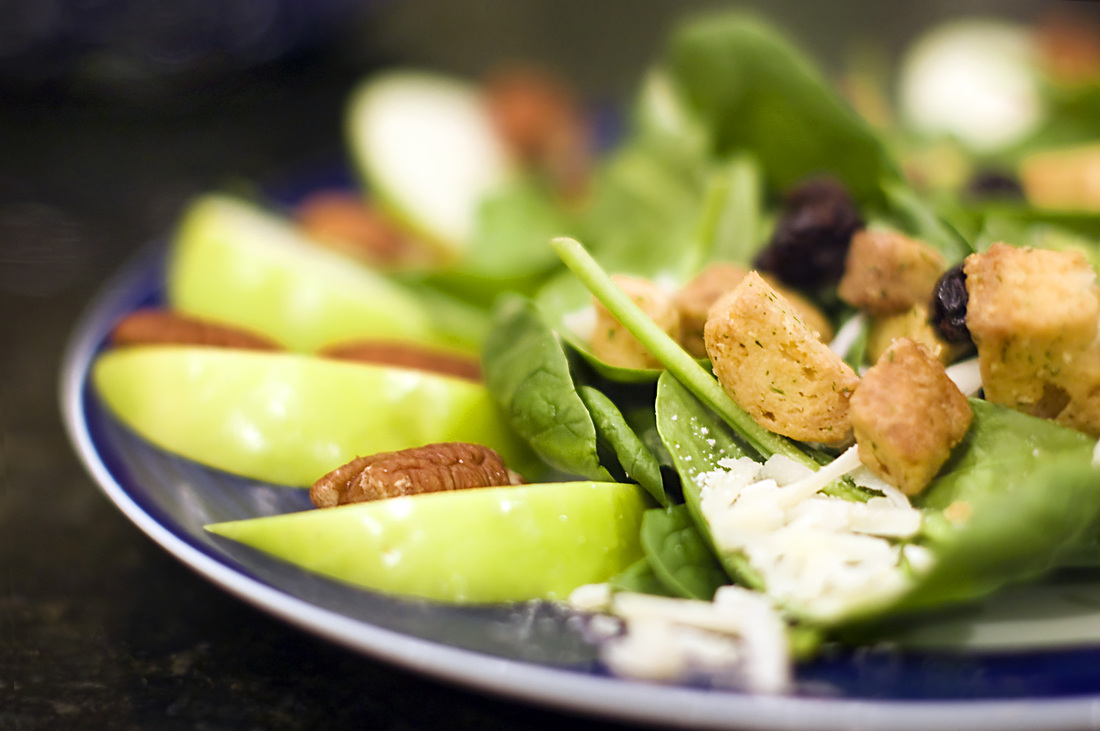|
Last week I read an article about colon cleansing. It was mixed in with lots of glossy pictures of winter trends, and the article was asking three people - a mixture of experts and medical professionals - about their opinion on colon cleansing. The doctor among them - who looked a little (ok, a lot) like Scrooge - firmly stated that colon cleansing was a thumbs down because your colon isn't dirty! His exasperation was evident in his words (and the exclamation point). It was one of those moments where I felt like Dr. Scrooge had reached out of the pages and slapped me in the face with the obvious old-school truth about our assholes. And it made me start to think about the idea of cleanliness and dirtiness as they relate to lots of things - especially food.
"Clean" has a very special meaning in the United States, where there is a uniquely high rate of germophobia or fear of contamination. When running a search for the word "clean" I got hits for brooms and mops (and a crawling infant in a sponge onesie), but a lot of hits were for things like clean living, clean eating, clean food, and this stuff called "clean cuisine." The word clean is used to describe a lot of unlikely things. In personal ads it's used to convey someone's STD/HIV-free status. In drug rehab parlance it's used to describe how long someone has gone without using. And when talking about food and diet, clean is used to describe what we culturally associate with low-calorie/low-fat consumption. I have heard people (including myself!) describe the feeling after eating, say, a 7-11 hot dog smothered in plasticy cheese as "feeling dirty." And it's not just the nitrates. It's the guilt and shame of eating things like a ho-ho or a ding-dong (may they rest in peace) or anything from McDonald's. And make no mistake: the shame is not just about the fat content, it's about the class implications of eating foods that have been deemed unclean. Eating cheap food - which urban poor and working class people are perceived as eating regularly - is the moral equivalent of being dirty (more on this in a second). I don't know about you, but all of this clean unclean food talk reminds me of the days when I was a Sunday School teacher. What purpose do these classifications serve today in our culture, anyway? Fear of poor people (especially poor people of color) and their potential to contaminate other non-poor/non-racialized people is a cultural staple in capitalist society like ours where there are very limited safety nets/government-provided benefits for US citizens and white supremacy is an essential part of the function of institutions. In the current age, fatness is associated with poverty. The fat body becomes a symbol of the perceived laziness of poor/working class people, who - if they were "better" citizens, as the myth dictates - would be able to work their way out of poverty and into the glorious halls of respectability. For non-poor and wealthy people the fat body becomes a corporeal reminder that represents what could happen to you if you become poor. The food that is seen as causing fatness is therefore seen as unclean - taboo. Make no mistake that race is part of this as well. People with dark skin are taught that they/we are dirty, and this permanent "dirt" (our pigment) is irredeemable. All of these things - the anxiety about racialized people and poverty - are projected onto food. Food becomes a fetish - a stand-in - for all the nuanced things we can't entirely articulate but that are unmistakably there. Ok, one more level of analysis and then we'll stop! Our culture values the pursuit of ever-increasing germ-free levels of cleanliness - as a way to ensure long-life and disease-free living, which ensure productivity. This is connected to Western medicine, science and technology and these things are part of the prevailing white-supremacist/androcentric concept of human progress. I believe that consuming and buying into the idea of "clean" foods become a way we signal to ourselves, our networks and our culture that we are part of/on board with this project of progress. And, yeah, poor, fat, non-white people are just not signalling that - at all - and so we become, like, enemies of the state and subject to public acts of policing. I bet you didn't know your fat was doing all that, huh? In conclusion, you don't have to agree with all of my contentions nor do you have to feel bad for maybe sometimes buying into the "clean" food thing. And I don't mean to imbue a double decker taco or a salad with incredible ramifications for global citizenship and heteropatriarchy. But I do want to encourage you to critically interrogate your feelings around food and where they come from.
I love this. I never even thought of the race connection (hello white privilege!) to "bad" foods. You are such an amazing writer and take me to so many places intellectually. I've always noticed how sexualized food has become. Commercials for chocolate are basically soft core at this point. And it's all this "be bad," "be naughty," "treat yourself...you earned it."
Zelda
1/19/2013 08:30:14 am
The concept of clean eating doesn't have anything to do with white supremacy, or racism or class wars. It's just a term for eating nutritiously dense food that's relatively low in fat, calories, and processed carbs and sugars. It's associated more with sports and fitness nutrition more than anything.
Cait
7/21/2013 10:29:50 am
Those foods you mention are only cheap if you are time-rich. Just look at the difference between cooking times for brown versus white rice. Comments are closed.
|
Virgie Tovar
Virgie Tovar, MA is one of the nation's leading experts and lecturers on fat discrimination and body image. She is the founder of Babecamp (a 4 week online course focused on helping people break up with diet culture) and the editor of Hot & Heavy: Fierce Fat Girls on Life, Love and Fashion (Seal Press, 2012). She writes about the intersections of size, identity, sexuality and politics. See more updates on Facebook. Archives
April 2021
Categories
All
|




 RSS Feed
RSS Feed